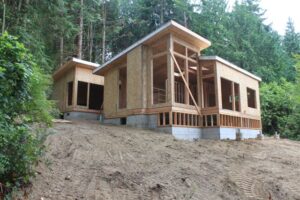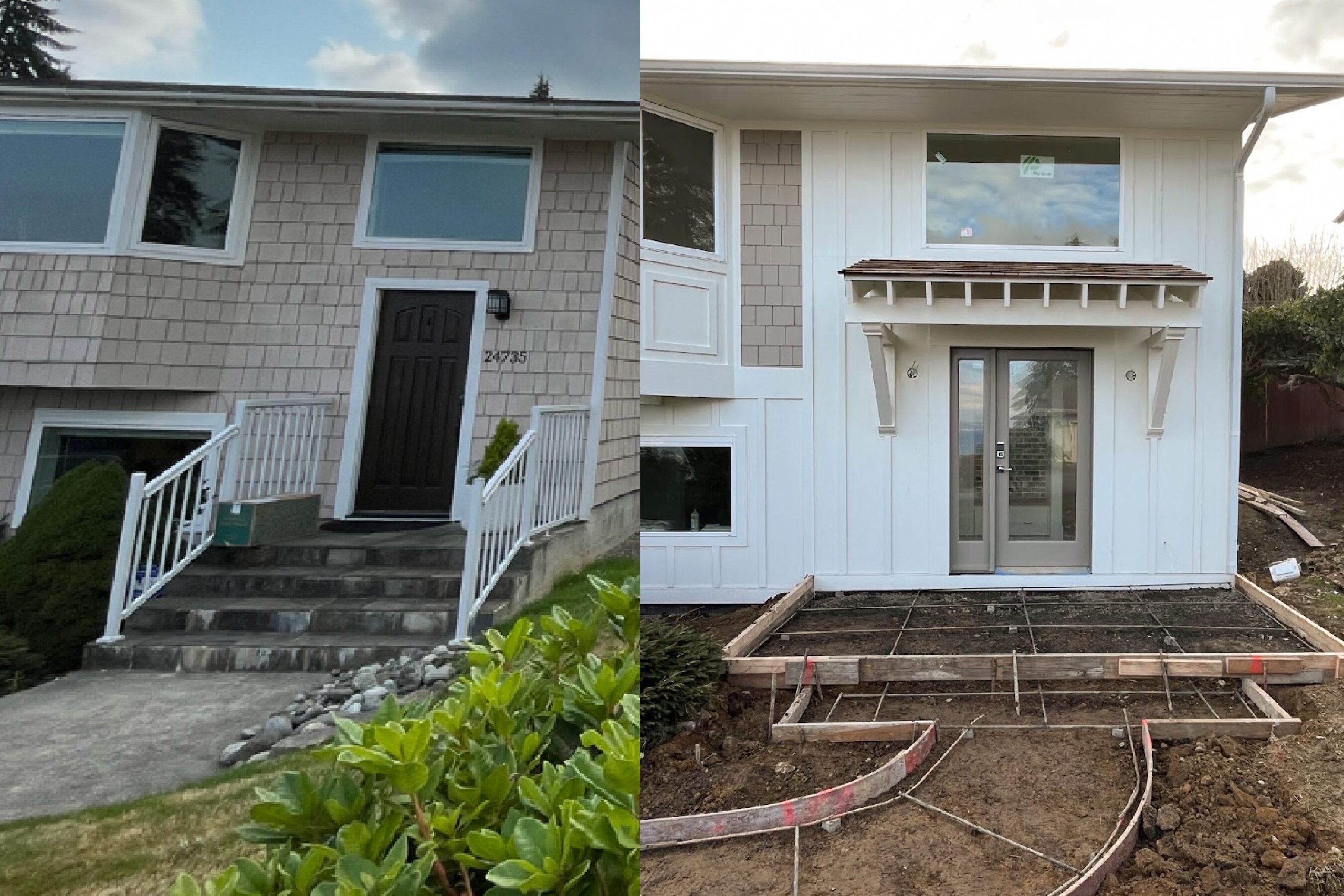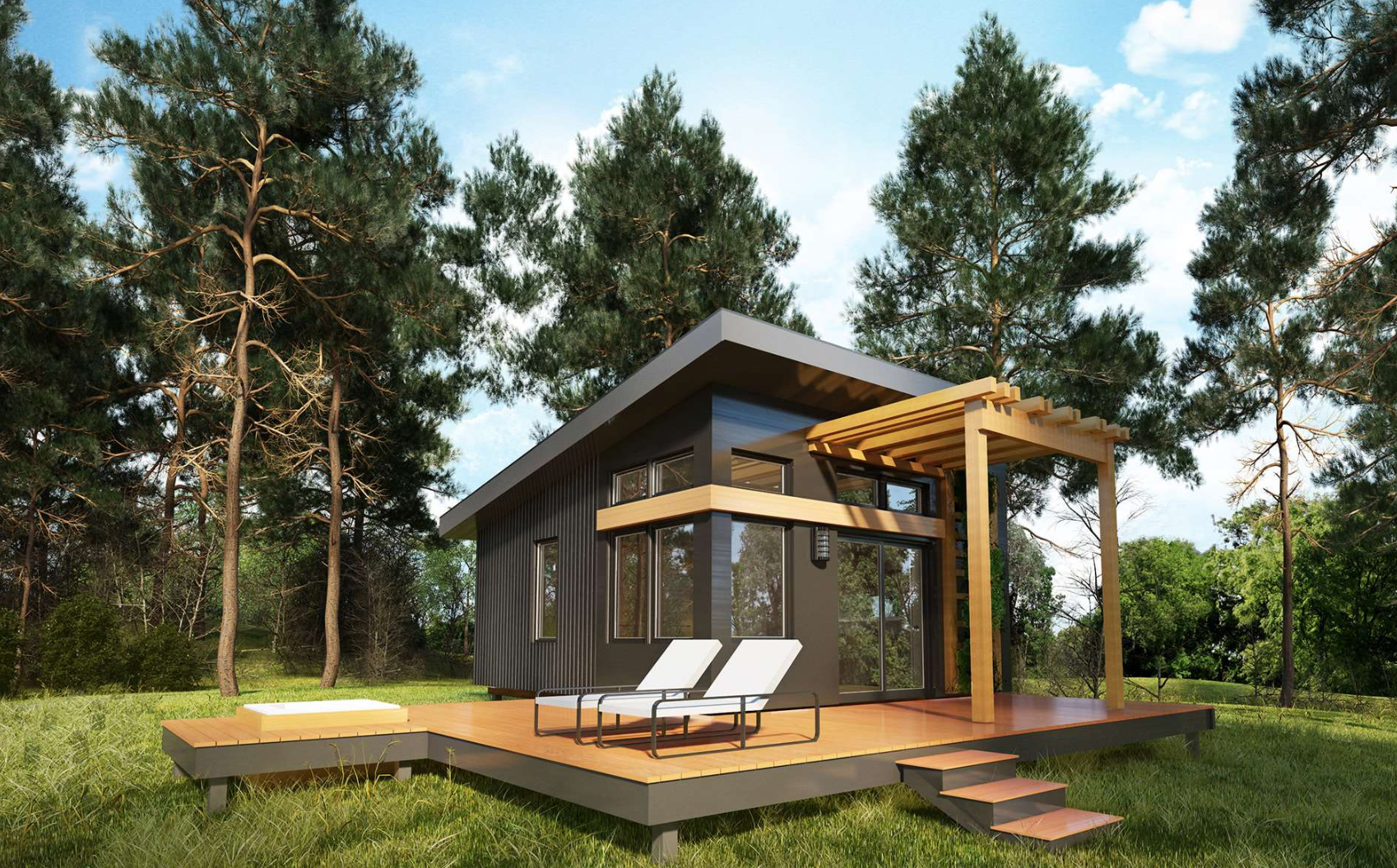Structurally insulated panels (SIPs) have become an increasingly popular choice for building homes over the past few decades. SIPs consist of an insulating foam core sandwiched between two structural panels, typically made of oriented strand board (OSB). SIPs offer a number of benefits over traditional building methods, including superior energy efficiency, strength, and durability. In this article, we’ll explore some of the key advantages of using SIPs for your next home-building project.
Are SIPS Energy Efficient?
One of the main reasons that people choose SIPs over traditional building methods is their superior energy efficiency. The insulating foam core of SIPs provides excellent thermal resistance, which can help to reduce your energy bills and make your home more comfortable. SIPs can also help to reduce air infiltration, which can lead to lower heating and cooling costs.
SIPs are typically rated according to their R-value, which is a measure of thermal resistance. The higher the R-value, the better the insulation performance of the panel. SIPs can have R-values ranging from R-14 to R-50 or higher, depending on the thickness and type of foam insulation used.
Compared to traditional stick-framed walls, which typically have an R-value of around R-13, SIPs offer significantly better insulation performance. This means that homes built with SIPs can use less energy for heating and cooling, which can save homeowners money on their energy bills and reduce their environmental impact.
Are SIPS Houses Strong?
Another major advantage of SIPs is their strength and durability. SIPs are incredibly strong and rigid, which means they can resist a wide range of structural loads. This makes them an ideal choice for areas with high wind or seismic activity.
In addition, SIPs are highly resistant to moisture and mold growth. The foam insulation used in SIPs is typically closed-cell, which means that it resists moisture infiltration. The OSB facing panels are also treated with a water-resistant coating, which helps to protect the panels from moisture damage.
The combination of strength and moisture resistance makes SIPs an ideal choice for building in areas with harsh weather conditions, such as hurricanes or floods. In fact, some insurance companies offer lower rates for homes built with SIPs due to their superior strength and durability.

Speed and Efficiency of Construction
SIPs can also offer significant time and cost savings during the construction process. Because SIPs are prefabricated off-site, they can be quickly and easily assembled on-site, which can save time and reduce labor costs.
In addition, SIPs can help to reduce waste during the construction process. Traditional stick-framed construction can produce a significant amount of waste material, including excess wood, insulation, and drywall. SIPs are manufactured to exact specifications, which means that waste is minimized during the manufacturing process. This can lead to cost savings and a reduced environmental impact.
Design Flexibility
SIPs offer a great deal of design flexibility, which can make them an ideal choice for a wide range of architectural styles. SIPs can be used to create a variety of building shapes and sizes, including curved walls and roofs. They can also be used to create large spans and open floor plans, which can help to create a more spacious and airy interior.
In addition, SIPs can be easily combined with other building materials, such as wood, brick, or stone, to create a wide range of aesthetic styles. This means that homeowners can achieve the look and feel they want for their home while still enjoying the energy efficiency and strength benefits of SIPs.
Environmental Benefits
SIPs offer a number of environmental benefits over traditional building methods. SIPs use less wood than traditional stick-framed construction, which means they can help to conserve forests. In addition, SIPs are made with a variety of environmentally friendly materials, including foam insulation made from recycled materials. Finally, because SIPs are so energy-efficient, they can help to reduce the carbon footprint of your home by reducing your energy consumption.
If you are looking for a strong, energy-efficient, and environmentally friendly building material for your new home, structurally insulated panels are an excellent choice. SIPs offer numerous benefits over traditional building methods, including superior energy efficiency, strength, durability, design flexibility, and environmental sustainability. Whether you are building a small cottage or a large family home, SIPs can help you create a beautiful, comfortable, and eco-friendly living space.


